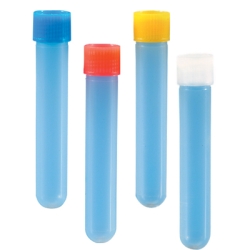Rolly
Well-Known Member
I just purchased the refractometer from AHS that has brix/gravity. It says it has automatic temperature correction.
Does this mean I only need to calibrate it with distilled water right out of the box, then I don't need to do it again? So going forward I can put 3 drops of boiling wort on the plate and it will give me an accurate reading, regardless of ambient temperature in the room?
The instructions were obviously written in China so they aren't exactly crystal clear. I'm just hoping I don't have to constantly calibrate and make adjustments to the reading. If I had to go through all that everytime I think I'd just go back to a hydrometer.
Does this mean I only need to calibrate it with distilled water right out of the box, then I don't need to do it again? So going forward I can put 3 drops of boiling wort on the plate and it will give me an accurate reading, regardless of ambient temperature in the room?
The instructions were obviously written in China so they aren't exactly crystal clear. I'm just hoping I don't have to constantly calibrate and make adjustments to the reading. If I had to go through all that everytime I think I'd just go back to a hydrometer.




